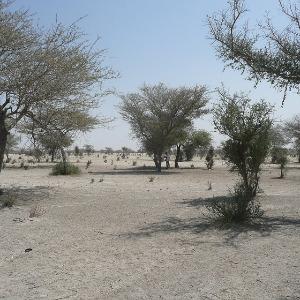Please find below the
Finalist Evaluation
Judges'' comments
This is a strong proposal for an innovative project that has the potential to increase knowledge in sustainable agricultural practices and improve the resilience of agriculture locally and the livelihood of the communities. The project considers capacity building locally as an output of the PoliRural cells (which is a great outcome) but could you also discuss the transfer of knowledge generated in the cells back to academics (for instance within university curriculum, summer schools for university students etc..)?
Semi-Finalist Evaluation
Judges'' ratings
| • | Novelty: | |
| • | Feasibility: | |
| • | Impact: | |
| • | Presentation: |
Judges'' comments
Interesting in concept, but the narrative implies a heavy top-bottom approach to knowledge transfer, with local and indigenous knowledge coming as an afterthought. Please elaborate on how the process will truly be participatory, local, build on indigenous knowledge, and then use science to fill in the knowledge gaps.
The proposal is classically linked to the interest of agroecological approaches to reinforce the resilience of vulnerable populations, with the main idea to go through school and training. The idea to connect schools and tree nurseries is good. However, the approach is very top-down, with a misconception of agroecological innovation (« Farmers can learn from experts coming from universities and advanced farms how to overcome the climate challenge. They will be taught about agroecological design, planning and practices »). Agroecological innovation should be mainly based on local innovation systems, even though it could use scientific knowledge and advanced technologies. The proponents should try to capitalize on the outcomes of the numerous projects on the same question in the same region and establish partnerships with other organizations. The feasibility is very difficult to judge since there is no clear theory of change and the budget seems very optimistic.
The project may gain in feasibility and acceptance if it were developed with local actors. There are already existing institutions working on the Sahel in Mali including Institut du Sahel and Institut of Economie Rurale who could play and/ or already playing such role...Partnering with such actors could strengthen the proposal and review what is the added value of such project and or building on the existing partners/ results so far in Mali.
No comments have been posted.
